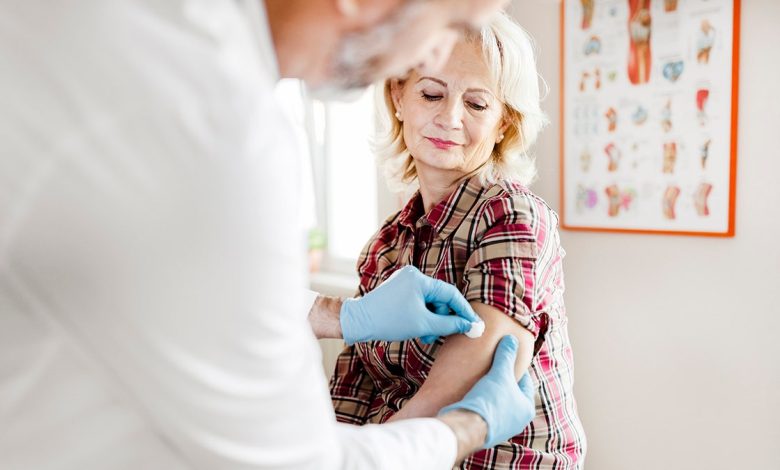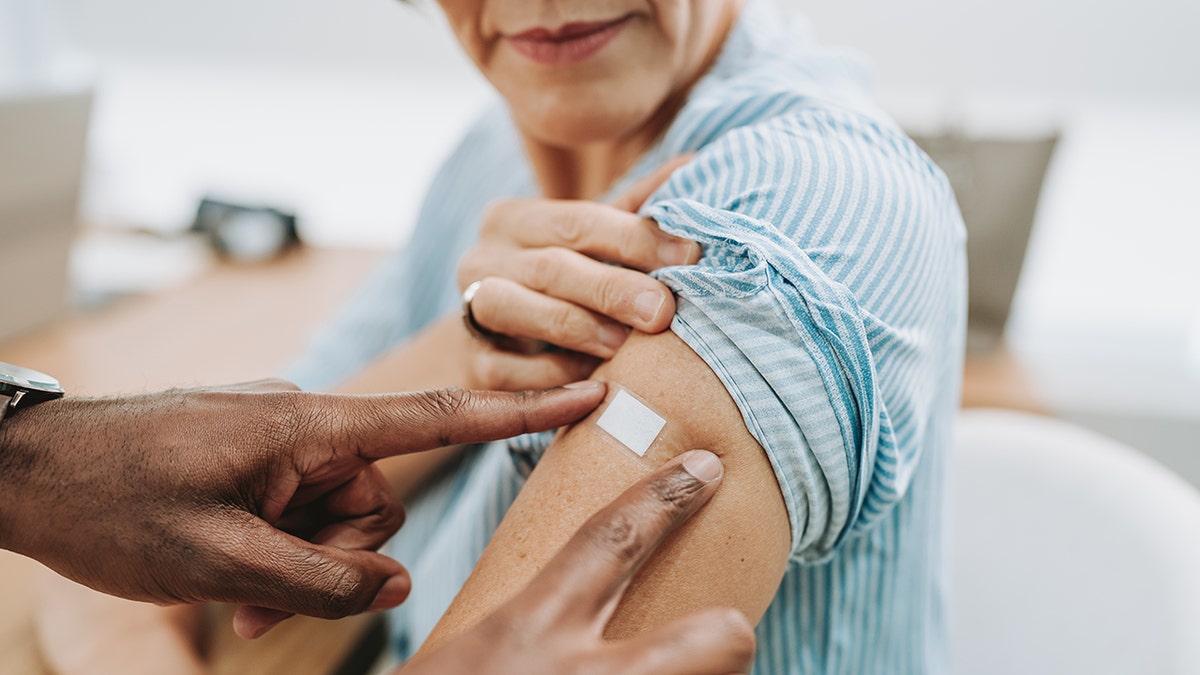Research shows link between shingles vaccine and lower dementia risk

The link between the zoster vaccine and a lower dementia risk has been strengthened in new research.
A study by Stanford Medicine, published in the journal Nature on April 2, found that the vaccine — which is used to prevent shingles — reduced the probability of a new dementia diagnosis by about 20% over the next seven years.
“If these findings are truly causal, the zoster vaccine will be both far more effective and cost-effective in preventing or delaying dementia than existing pharmaceutical interventions,” the researchers noted in the study.
NEW BLOOD TEST DIAGNOSES ALZHEIMER’S DISEASE AND MEASURES HOW FAR IT’S PROGRESSED
These findings also support an emerging theory that viruses impacting the nervous system can increase dementia risk.
Senior study author Pascal Geldsetzer, MD, PhD, assistant professor of medicine at Stanford, said he considers these findings “hugely important” for clinical medicine, population health and research.
Researchers have marked a link between the zoster vaccine and lower dementia risk in multiple data sets. (iStock)
“For the first time, we now have evidence that likely shows a cause-and-effect relationship between shingles vaccination and dementia prevention,” he told Fox News Digital.
“We find these protective effects to be large in size – substantially larger than those of existing pharmacological tools for dementia.”
The randomized trial took advantage of the unique way the zoster vaccine was rolled out in Wales, U.K., in 2013, Geldsetzer noted.
TWO ALZHEIMER’S DRUGS HELP PATIENTS LIVE INDEPENDENTLY AT HOME FOR LONGER PERIODS
“They said that if you had your 80th birthday just prior to the start date of the program, you are ineligible, and you remain ineligible for life,” he said. “If you had your 80th birthday just after, you were eligible for at least one year.”
“We see in our data that just a one-week difference across this date-of-birth cutoff means that you go from essentially no one getting vaccinated to about half of the population getting vaccinated.”

The study found that women benefited from the vaccine more than men in terms of reduced dementia risk. (iStock)
Both the vaccine-eligible and ineligible groups are “good comparison groups,” according to Geldsetzer, since the only difference is that they were born a few days earlier or later.
The same protective effect of shingles vaccination for dementia has been identified in different populations and countries that rolled out the vaccine in a similar way, the researcher revealed.
EXPERIMENTAL WOMEN’S CANCER DRUG BOOSTS SURVIVAL RATES IN NOTABLE STUDY
To gather more evidence and confirm the link, Geldsetzer recommends conducting a clinical trial.
“I’m currently trying to raise funds to conduct such a trial from private foundations and philanthropy,” he said.
“We want to trial the live-attenuated vaccine (the vaccine for which we have generated our compelling body of evidence), which is no longer being manufactured in the U.S.”

The protective effect of shingles vaccination for dementia has been identified in different populations and countries, according to researchers. (iStock)
Family physician Dr. Mark Loafman, who was not involved in the study, weighed in on the association between the shingles vaccine and dementia risk.
“We commonly see intriguing headlines from studies showing an association between a particular health outcome and exposure to something in the environment, our diet or medication,” the Chicago doctor said in an interview with Fox News Digital.
“The challenge when interpreting this type of data is that an association is in no way proof that the exposure is what caused the health finding.”
CLICK HERE TO SIGN UP FOR OUR HEALTH NEWSLETTER
Loafman said this large-population study does a “very good job” of excluding the possibility that the vaccinated and unvaccinated groups share different attributes that could skew the outcome.
“So, it really does look like the vaccine does indeed offer a fairly significant level of protection against developing dementia.”

These findings support an “emerging theory” that viruses impacting the nervous system can increase dementia risk, according to Stanford Medicine. (iStock)
“The study also includes compelling evidence to support two highly plausible mechanisms … in which the vaccine decreases the incidence of dementia,” he added.
This includes the fact that the herpes virus, which causes chickenpox and shingles, settles into the nervous system and lies dormant, which can ignite shingles later.
For more Health articles, visit www.foxnews.com/health
“Secondly, the live-attenuated vaccines, like the shingles vaccine, are associated with neuroprotective properties,” Loafman went on. “The association is not in itself causal, but this study adds a lot more credibility to this association.”
CLICK HERE TO GET THE FOX NEWS APP
Loafman, who has already received the shingles vaccine himself, said he will recommend it to patients in light of this research.
“These findings bring even more encouragement for me to recommend it to my eligible patients, friends and family,” he said.



